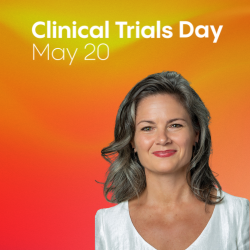A new report from an independent research group gives the U.S. Food and Drug Administration (FDA) generally good marks for how the agency currently uses patient experience data to inform regulatory decision-making.
FDA contracted with Eastern Research Group, Inc. (ERG) to conduct this first assessment and to produce the report. ERG assessed document reviews for New Drug Applications (NDAs), Biologics License Applications (BLAs), and efficacy supplements and conducted interviews with FDA staff, applicants, and external stakeholders (patients, caregivers, clinicians, representatives of advocacy/research organizations).
The assessment gathered information to answer three questions:
- How does FDA use patient experience data in regulatory decision-making?
- How do FDA staff, applicants, and external stakeholders characterize (a) use of patient experience data in regulatory decision-making and (b) FDA communication about use of these data?
- What good practices and opportunities for improvement exist for (a) use of patient experience data in regulatory decision-making and (b) FDA communication about use of these data?
The report from ERG provides details regarding the methods used to identify, collect, and analyze data for this assessment, results, and key findings. It also includes recommendations to the FDA on how to better communicate and expand the use of patient experience data in regulatory decision-making, and to external stakeholders regarding the use of good practices to aid in the acceptance of patient experience data by the FDA.
For example, the report has some ideas about how FDA and industry can be more consistent in “whether and how” the agency uses patient experience data in application approval decisions.
The report’s recommendation for applicants: When pursuing a drug/biologic development program, consult FDA guidance… and FDA staff early and often to discuss the potential value of patient experience data, types of data to develop, fit-for-purpose tools to use, approaches to collecting complete data, and a data analysis plan.
The report’s recommendation for the FDA: Continue or expand collaborative programs to foster development of patient-focused drug development tools and clinical outcome assessments. Internally and externally, provide models of applicant development and presentation of patient experience data in marketing applications and FDA use of these data in various therapeutic contexts. Within and across review divisions, encourage sharing of additional examples of use of patient experience data in regulatory decision-making.
Edited by Michael Causey



